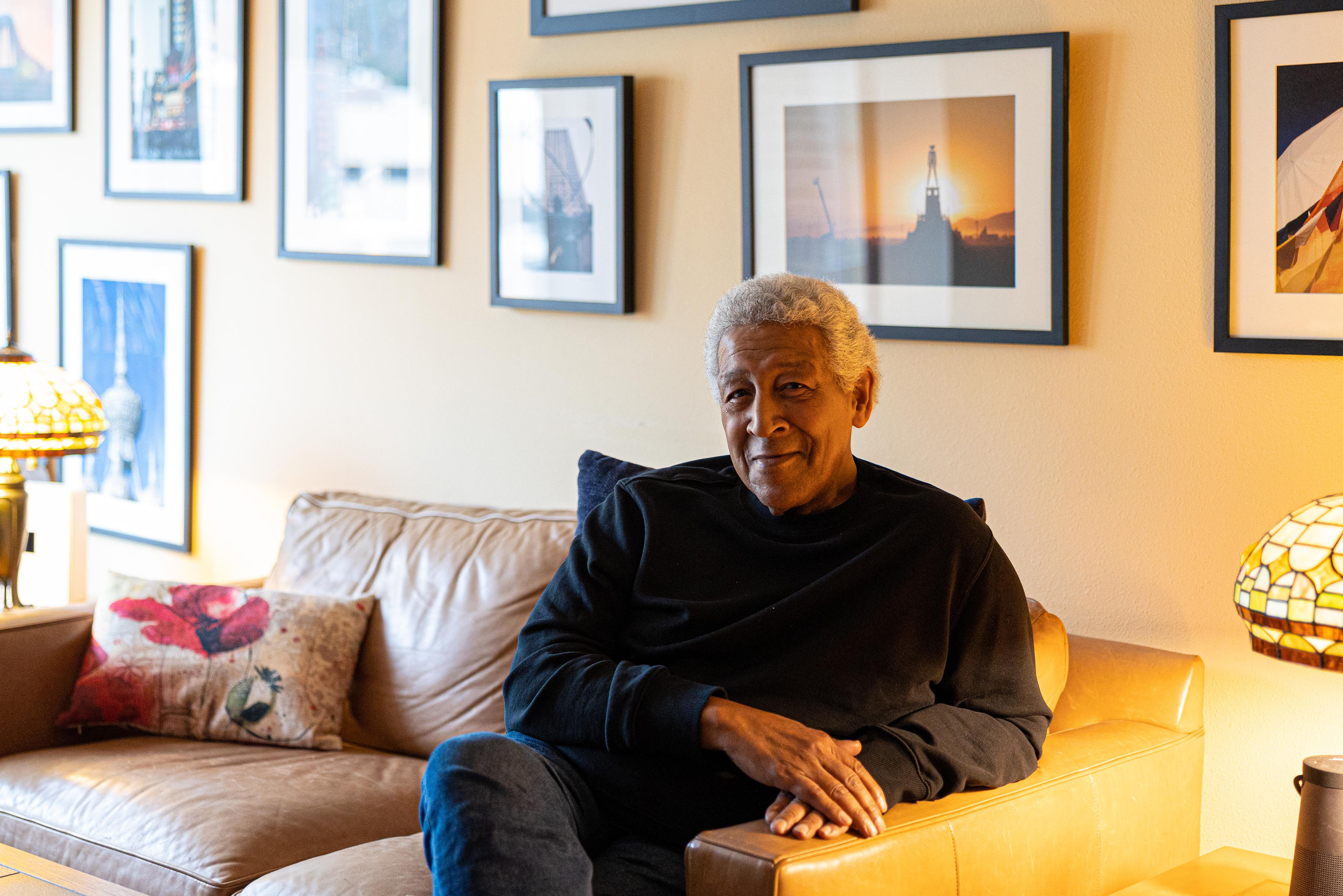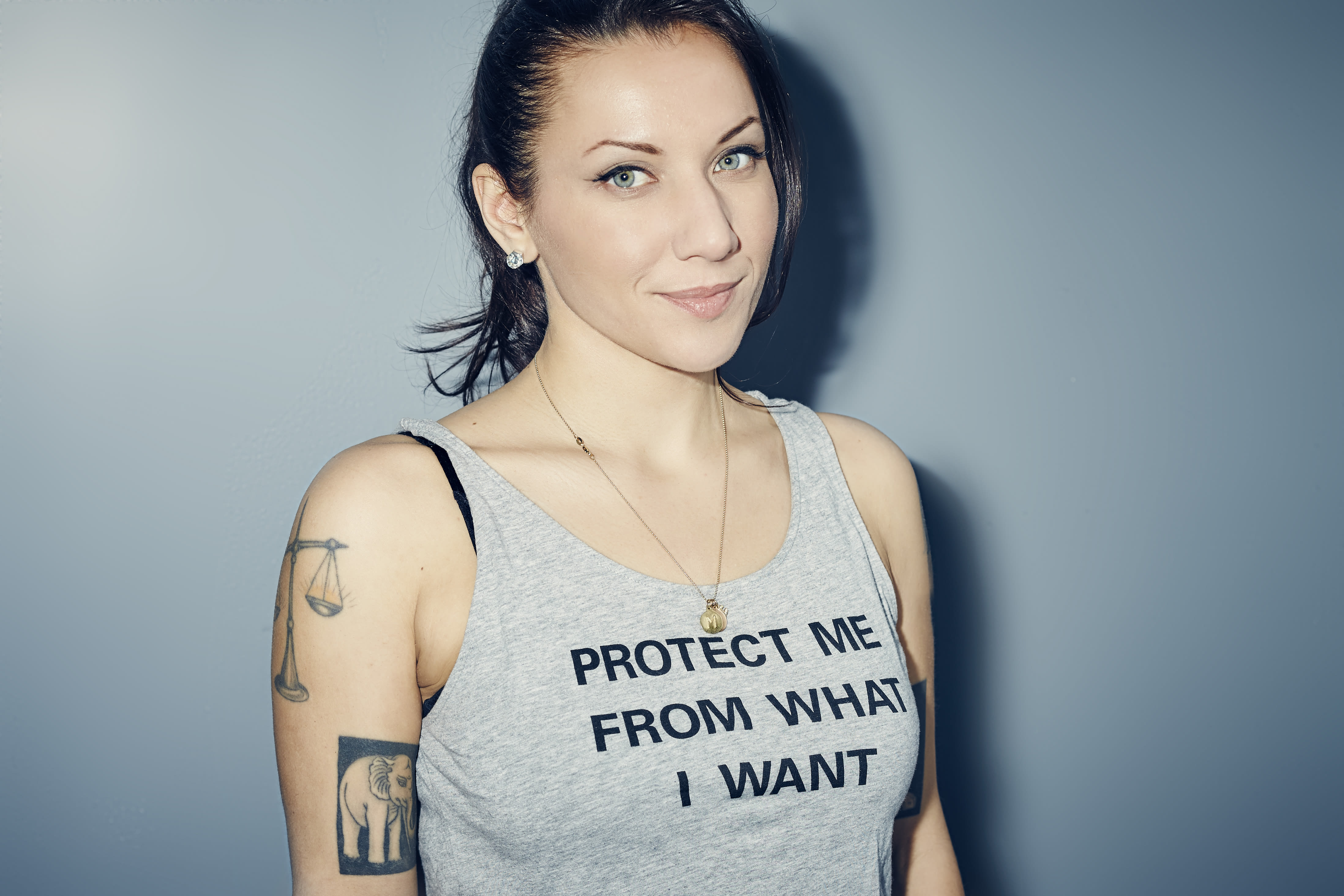Portland Tattoo Artist Alena Chun on Social Media Cred, Why Her Shop’s Not for Everyone, and More
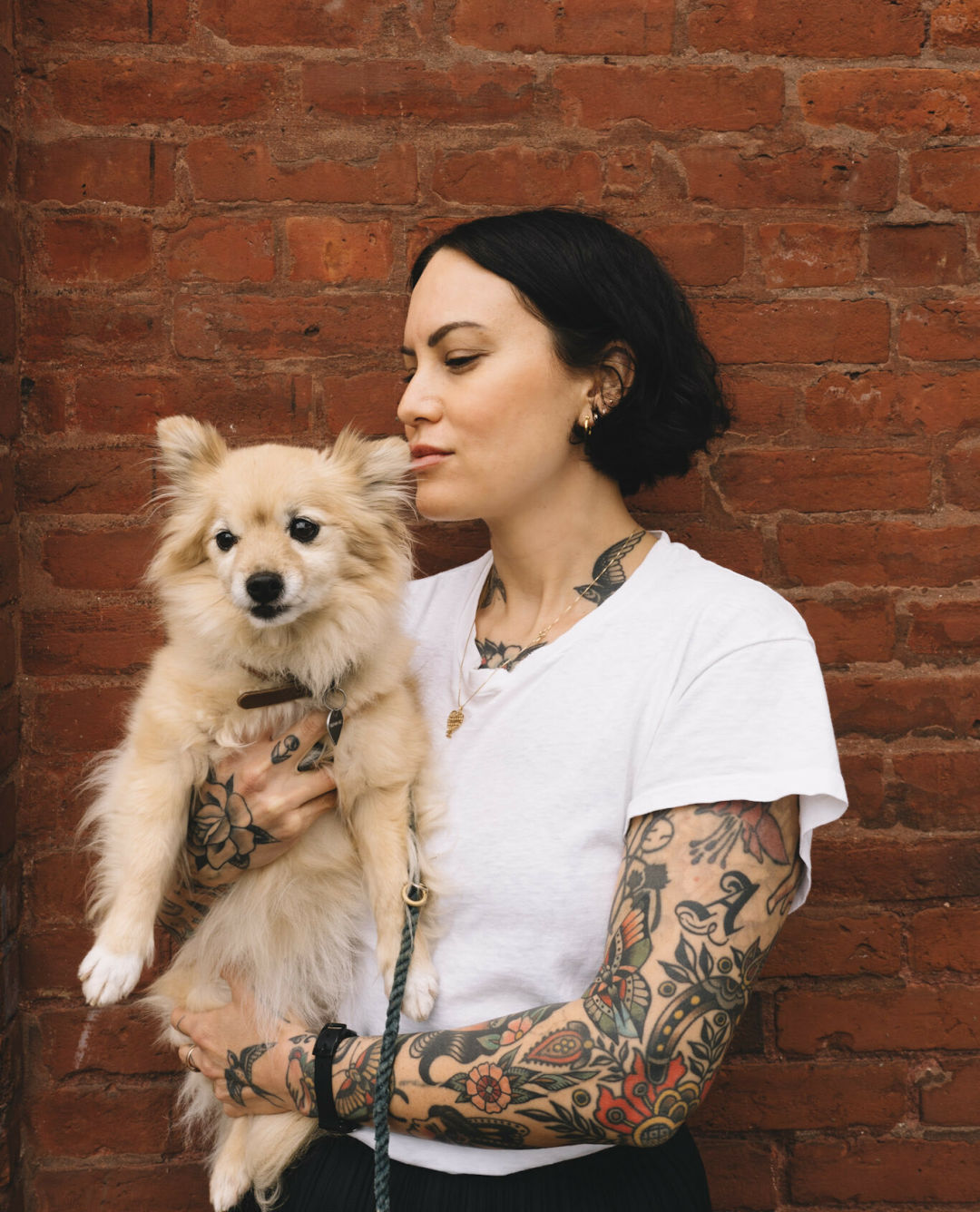
Image: B. Okabe
Alena Chun is a bit of a legend in Portland’s tattoo community. Her North Portland shop, Icon Tattoo, is a fixture of the scene, and the spot from which Chun regularly shares photos of her work with more than 20,000 Instagram followers.
Tattoo styles have proliferated wildly in the last few decades, but Chun is part of a long line of tattooers working in the American Traditional style, designs characterized by bold black outlines and classic images of roses and skulls. Before lending his name to the rum producer, Sailor Jerry was a pioneer of the field; before licensing his name to the popular-among-Jersey-Shore-stars T-shirt brand, Ed Hardy was a contemporary.
Tattooers working in the style today are not just influenced by the aesthetic—they literally trace the lines drawn over a hundred years ago. This can create tension: when you’re perpetuating a design that old, it’s important to question the message behind the imagery, says Chun.
Some American Traditional designs feature culturally appropriated imagery, or worse, blatantly racist depictions. We spoke with Chun about what carrying on and course-correcting the tradition looks like, how social media has changed the tattoo industry, and how she fell into the world in the first place. Our conversation has been edited and condensed for clarity.
PORTLAND MONTHLY: How did you get into tattooing?
ALENA CHUN: I actually had an apprenticeship with the original owner of Icon. I didn't have any art experience, or really anything to show for myself, except a passion for it, and they decided to give me a chance. I started off in 2007 hanging around, cleaning, watching people tattoo, and working on drawings, before learning how to do more specific stuff like scrubbing tubes and making needles and filling machines. And then eventually, I started tattooing. I stuck around and eventually took it over myself in 2020, right before the pandemic.
Do you identify as an artist first, or does the craft side of tattooing appeal to you more?
I don't identify as an artist with a capital A. I think that tattooing is an art form, but it's also about design and style preference, swagger ... your artistic mojo or whatever you want to say. For example: if you make a painting, that's just you and everything that you want to put into it. Whereas if you do a tattoo, you're influenced by the client's desires, the size, all these things. So there are limitations to it that are particular to the craft.
How has social media affected tattooing?
I'm kind of an interesting generation of tattooer in that I did tattoo before social media, but I'm not like the older generation who had a long career before social media. [It used to be] more about where your shop was, did it have traffic. Now, it's this whole different thing of like, "Oh, I've seen your work, I'm seeking out this individual."
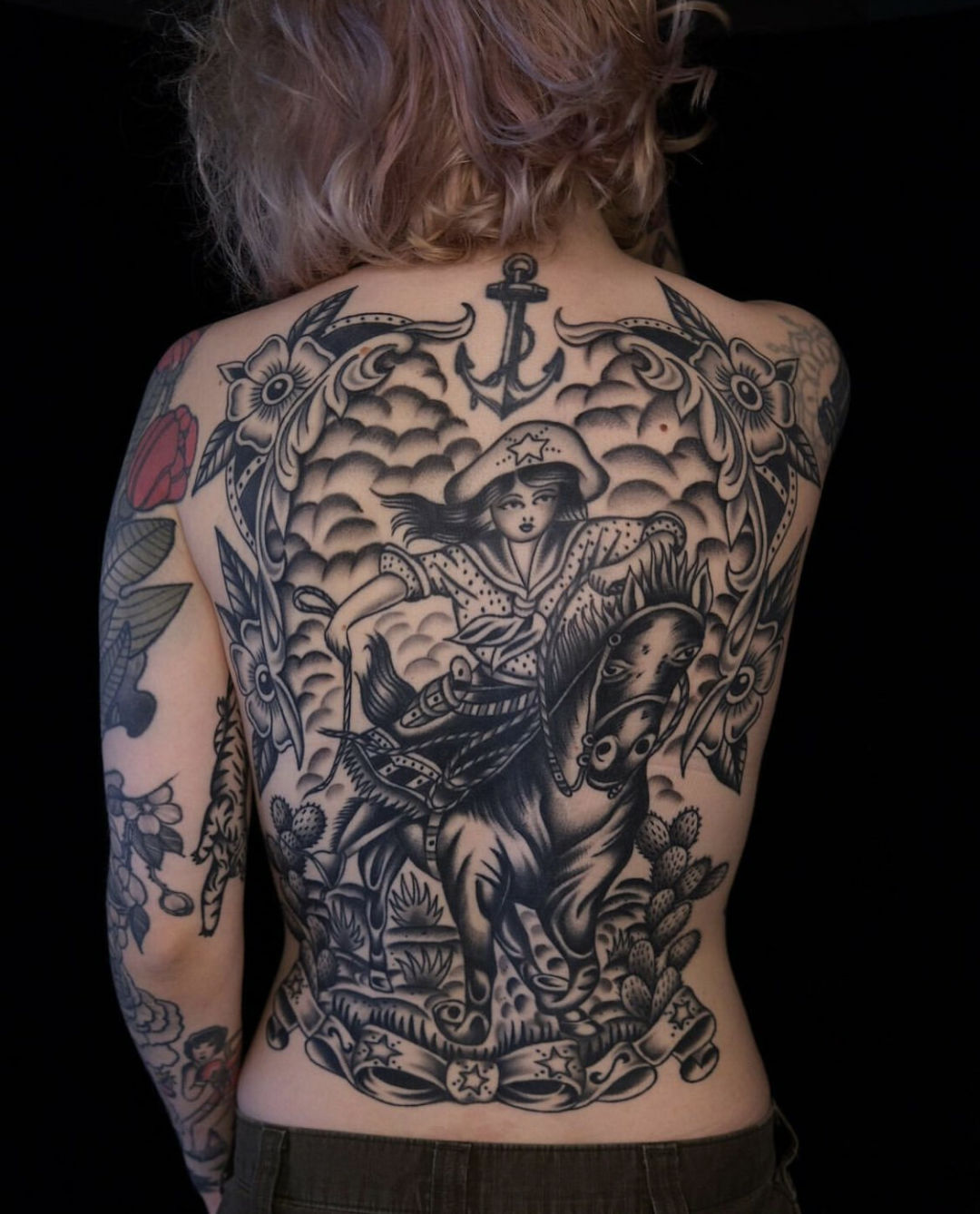
Image: Alena Chun
Does that give you more freedom to do what you want to do?
I think so. It’s also changed the industry. Traditionally, [tattooing] was very stigmatized in society, a very working-class kind of a job. And now it’s become this desirable job—people see it as a cool thing.
I think it’s helped me grow a lot as an artist, too. When I first started tattooing, shops barely even had websites. My exposure to tattoos was just what was around me and in books. Now you can follow people all over the world. Posting my work has also really helped me invite the type of work that I want to do.
What are some of the negatives?
It really sucks to have to quantify your value as a person on the number of likes you're getting or who follows you. I think it's hard not to do that. What sells on Instagram is a super consistent body of work—a strong style—but I would argue that Instagram has undervalued versatility. It used to be that someone would come into a shop and you'd have to do whatever they wanted, and now people just do one thing.
The medium becomes the post, not even the tattoo.
Exactly. It's so much effort. You have to be a social media content creator to do well at this point, which is pretty shitty, honestly.
What was your experience being a woman of color getting into tattooing?
When I started, I knew very few women who tattooed. In Portland, I don't know if there were any other women of color tattooing. So in that way, the industry has changed a lot. Traditionally, there's a lot of issues with gatekeeping in the industry, and that is certainly not resolved.
I would say I'm very lucky; I had a friend who wanted to teach me. A lot of people had to go through traumatic, abusive situations to do apprenticeships, especially a lot of women or queer people or people of color, if they were even given a chance. I was very lucky and didn't have that. But it's certainly a big issue. And like I said, it's not resolved.
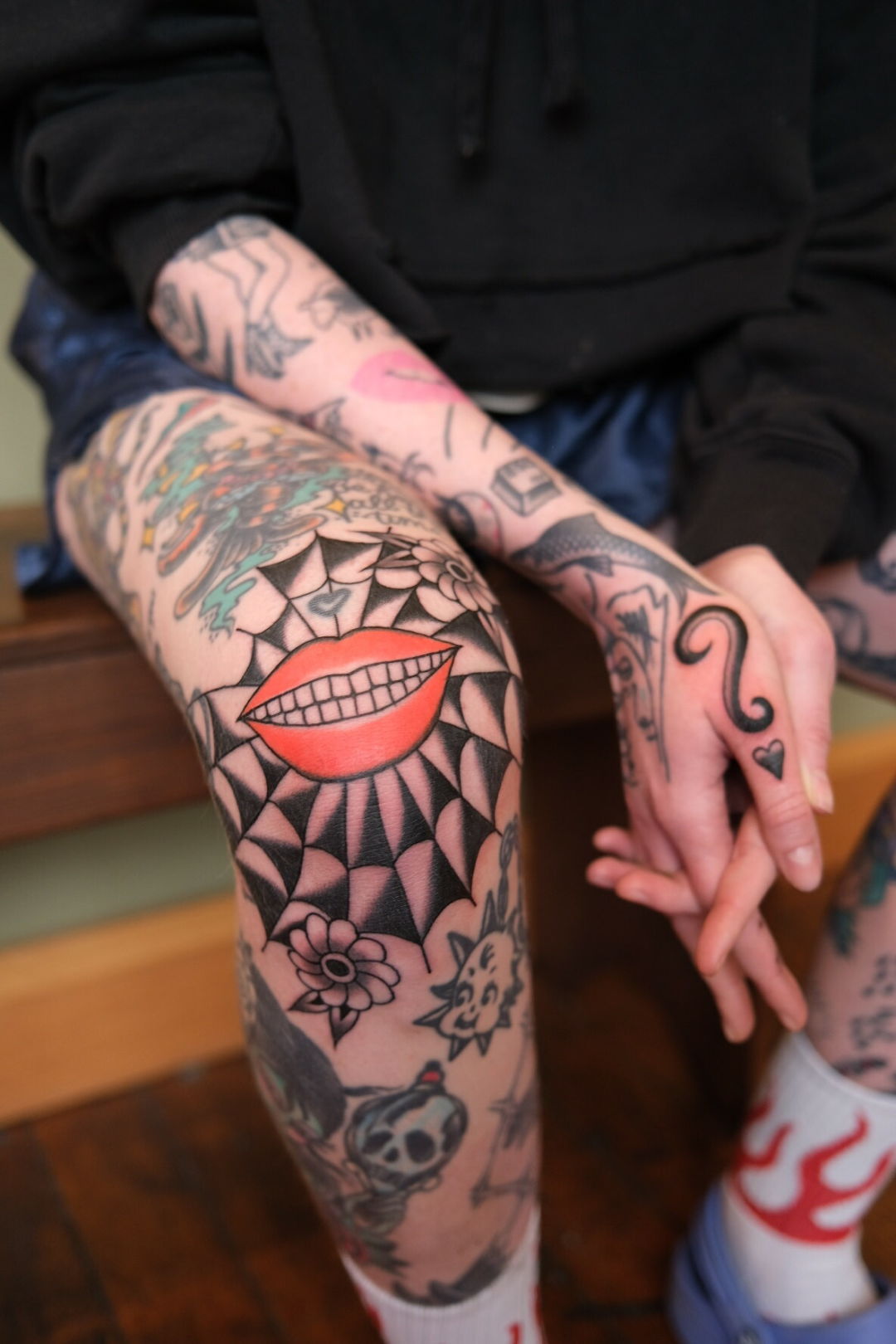
Image: Alena Chun
What appeals to you about working in the American Traditional style?
I mean, it's so cool. You can see designs from 100 years ago and get to recreate them. There's no way you can’t acknowledge that that's pretty sick. At the same time, in my opinion, there are things that should be left behind from that era. There's a lot of racist imagery that I would not touch, and I think that my intention doing American Traditional tattoos is to carry and respect some of the mindsets, techniques, and imagery, and leave behind the stuff that doesn't serve us anymore.
There's this concept with getting tattoos—and I think, in general, in society—where it's so focused on uniqueness. What’s beautiful about American Traditional is these images can be recreated so many times and the uniqueness is the hand of the artist, right? Not necessarily the content of the image. So, it could be a rose. If everyone who works at Icon did a rose, I could look at each one and know who did that and who did this. You recreate these images [asking], "How do I make this mine?"
How does that thinking influence how you run Icon?
My intention with the shop is to bring with it the things [from old-school tattoo shops] that I see of value, while also creating a space that a lot of different people feel comfortable in. I don't think it's up to you to say if you're a safe space, though. I'm not really a safe space for everyone. If someone came in wanting a white supremacist tattoo I'd tell them I'm not the artist for them.
Not an out-of-left-field situation in the tattoo world.
We’ve had people come in asking for white power tattoos, for sure. It’s not super common, but they’re around. The Proud Boys are not as far away as we like to think they are.
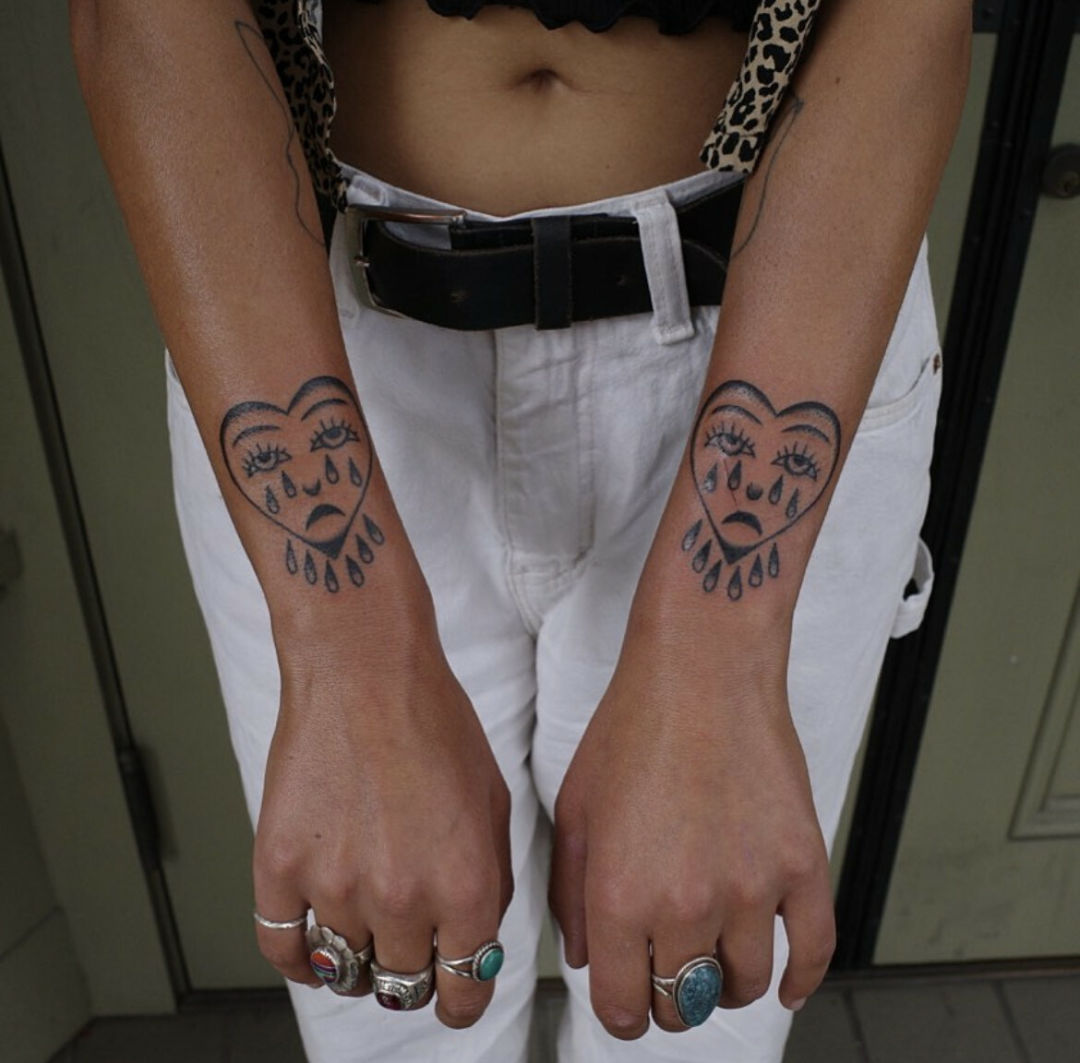
Image: Alena Chun
You’ve cited your Chinese and Korean heritage as an influence in your work. Can you talk about the dialogue between that and the American Traditional designs you’re inspired by?
I'm mixed race: half Asian, half white. Most people probably know that being biracial is confusing. It's sort of this process of finding yourself and figuring out where you fit in, and there's a lot of impostor syndrome. I went through a lot of that when I was younger, and I started to want to create more images that were influenced by Asian art, or even redrawing and reclaiming Asian girl pinups and things like that. As I started to do more work like that, I started to attract a lot of people of color clients who were interested in exploring identity through their tattoos. That has been so meaningful, and also affirming for me—to give that to clients and provide the thing they want. It's important for them to get it from an Asian person, and I'm learning about their families and all these things. That has been, like, a big part of who I've become, which is pretty fucking awesome.
Is there a specific design you've tattooed that you see as a landmark example of that reclaiming?
I don't think there's landmarks. I think it's an ongoing conversation that needs to be had, specifically in regards to what type of imagery is quote-unquote "OK to use." In the general sense, I think that’s a conversation that should basically never end. Because it really depends on who's asking for the thing, it depends on who's making money on the thing. There's a lot of racist images in tattooing that just should not be tattooed, in my opinion.
And then some of the designs that aren't blatantly racist, but were appropriated in the past—you've had an interest in reclaiming those?
Yeah. I should say, first, I think the only person who can reclaim something is someone who’s been directly oppressed by that image. [Being an Asian person,] if I want to draw this, it should be mine to draw.

